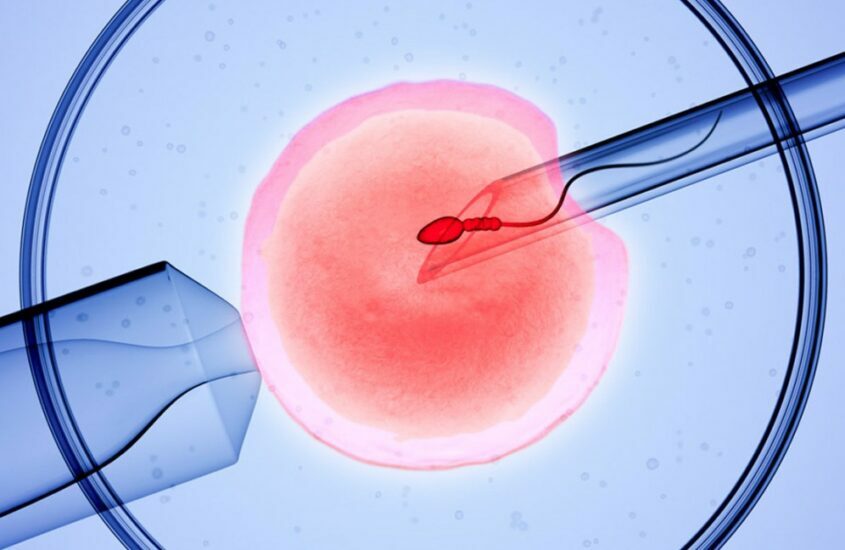Can Stress Affect My Pregnancy and Baby’s Health?

Pregnancy is a time filled with excitement and anticipation. However, it can also bring along feelings of anxiety and stress. Many expectant mothers wonder whether stress can affect their pregnancy and their baby’s health. Research shows that stress can have a significant impact on both, making it important for pregnant women to manage stress effectively.
How Stress Affects Pregnancy
When a pregnant woman experiences stress, her body releases stress hormones like cortisol and adrenaline. While these hormones are essential in the “fight or flight” response, chronic exposure to high levels of stress hormones can have adverse effects. Prolonged stress can lead to elevated blood pressure, weakened immune function, and increased risk of pregnancy complications. Infertility specialists often emphasize the importance of a stress-free environment during pregnancy to promote overall well-being.
Impact on Baby’s Development
High levels of stress during pregnancy can affect the developing baby in various ways. Studies suggest that chronic stress can lead to preterm labor, low birth weight, and developmental delays. Stress hormones can cross the placenta, affecting the baby’s growth and development. Babies born to mothers who experienced significant stress during pregnancy may be more prone to anxiety, ADHD, and other behavioral issues as they grow.
Common Sources of Stress During Pregnancy
Several factors can contribute to stress during pregnancy. These may include:
-
Financial Concerns: Preparing for a new baby often comes with financial worries. From healthcare costs to purchasing baby essentials, these concerns can be overwhelming.
-
Relationship Strain: Changes in relationships, whether with a partner, family, or friends, can add stress. The anticipation of becoming parents can bring joy but also tension.
-
Work Pressure: Balancing work responsibilities with pregnancy can be challenging. Fear of job loss or difficulty managing tasks can lead to increased stress levels.
-
Health Concerns: Anxiety about the health of the baby or the pregnancy itself can cause significant stress. Women with a history of IVF treatment or other fertility issues might be more anxious about their pregnancy.
Tips to Manage Stress During Pregnancy
Managing stress is crucial for both the mother and the baby’s health. Here are some effective ways to keep stress levels under control:
-
Regular Exercise: Light to moderate exercise, such as walking or prenatal yoga, can help reduce stress and improve mood. Always consult a healthcare provider before starting any exercise routine.
-
Healthy Diet: Eating a balanced diet provides essential nutrients that help regulate mood and energy levels. Include plenty of fruits, vegetables, lean proteins, and whole grains.
-
Sleep Well: Adequate rest is important for managing stress. Practice good sleep hygiene by keeping a regular sleep schedule, avoiding caffeine in the evening, and creating a comfortable sleep environment.
-
Mindfulness and Relaxation: Techniques such as meditation, deep breathing, and prenatal massage can help calm the mind and reduce stress.
-
Support System: Surround yourself with supportive friends and family. Sharing your feelings and concerns with loved ones or joining a support group can provide emotional comfort.
-
Professional Help: If stress becomes overwhelming, seeking professional help from a therapist or counselor specializing in prenatal care can be beneficial. Many infertility specialists also offer counseling to help expectant mothers cope with anxiety.
Importance of Prenatal Care
Regular prenatal check-ups with healthcare providers are essential to monitor both the mother and the baby’s health. These visits can help detect and manage any potential issues early on, reducing stress and providing peace of mind.
Long-term exposure to stress during pregnancy can have lasting effects on both the mother and the child. For the mother, chronic stress can lead to postpartum depression, which can affect her ability to bond with her baby. For the child, the effects can range from developmental delays to emotional and behavioral problems.
Conclusion
Stress is a natural part of life, and it’s normal to feel anxious during pregnancy. However, chronic stress can negatively impact both the mother and the developing baby. By adopting healthy lifestyle habits, seeking support, and choosing the best infertility center in Pakistan for prenatal care, expectant mothers can manage stress effectively.





